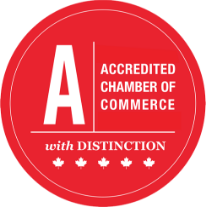Bill 148 will increase the cost of consumer goods and services by $1,300 per household starting in 2018, according to new analysis by leading economics firm
TORONTO, Monday, August 14 – Today the Keep Ontario Working Coalition (KOW), in partnership with the Ontario Chamber of Commerce (OCC) and the Milton Chamber of Commerce, released the first and only independent economic impact analysis of Bill 148, the Fair Workplaces Better Jobs Act. Conducted by the Canadian Centre for Economic Analysis (CANCEA), the study revealed that if the legislation is implemented as currently drafted, there will be significant, sudden and sizable uncertainty for Ontario jobs, economy and communities.
The study concludes that these vast, unprecedented reforms will put about 185,000 jobs at risk in the first two years, greatly impacting Ontario’s most vulnerable workers.
“The changes presented in Bill 148 will have dramatic unintended consequences that include putting close to two hundred thousand jobs at risk, and seeing everyday consumer goods and services increase by thousands of dollars for each family in Ontario,” said Karl Baldauf, Vice President of Policy and Government Relations at the Ontario Chamber of Commerce and spokesperson for the Keep Ontario Working Coalition. “We’ve run the numbers and it’s clear that this is too much, too soon. If the Ontario government chooses to proceed with these sweeping reforms too quickly, all of us will be affected, and the most vulnerable in our society chief among them.”
CANCEA was commissioned by the KOW coalition to measure the potential impacts of six key areas of change in Bill 148, including changes to minimum wages, “equal pay” provisions, vacation, scheduling, personal emergency leave (PEL) and unionization.
Data from the economic impact analysis shows:
- $23 billion hit to business over the next two years alone
- 185,000 Ontario jobs will be at immediate risk over the next two years
- 30,000 of the jobs at risk are youth under 25
- 96,000 employees at risk are expected to be women
- 50 per cent increase to inflation for this year and the foreseeable future. The cost of everyday consumer goods and services will go up by $1,300 per household on average each and every year
- The Ontario government would need to borrow $440 million more to cover the increases in new costs from this legislation. If the government were to provide offsets to businesses, as they have indicated, the province’s treasury will take a bigger hit
- Municipalities will be forced to increase employee wages by $500 million without additional offsetting revenues
“Simple accounting reveals that the Act creates a $23 billion challenge for Ontario businesses over two years. Annualized, this is 21 per cent of what Ontario businesses invest in capital,” Paul Smetanin, President, CANCEA. “Given the significant, sudden and sizable changes it would be remiss to expect that unintended consequences would not follow.”
In the coming weeks and months, the KOW coalition will release additional components to the economic impact analysis.
“Given the scale of impact and pace of change, it will be impossible for the provincial government to make businesses, even small businesses, whole through offsets,” added Baldauf. “With amendments to the first reading of Bill 148 due this Wednesday, the legislation will need to see serious change including an adjusted timeline for implementation.”
Since Bill 148 was introduced in June, the KOW coalition has called on the government to conduct an economic impact analysis to fully understand how the legislation will change Ontario’s economy. With the government unwilling to do so, the report released today represents the first and only independent economic impact analysis of this legislation.
For more details on the economic analysis, click visit keepontarioworking.ca
– 30 –
About the Keep Ontario Working Coalition:
The Keep Ontario Working Coalition (KOW) is a broad-spectrum group of business sector representatives concerned with sound public policy to help produce jobs and grow Ontario. For more information please visit www.keepontarioworking.ca. Members include:
- Association of Canadian Search, Employment and Staffing Services (ACSESS)
- Canadian Franchise Association (CFA)
- Canadian Federation of Independent Grocers
- Food & Consumer Products of Canada (FCPC)
- Food and Beverage Ontario (FBO)
- National Association of Canada Consulting Businesses (NACCB Canada)
- Ontario Restaurant, Hotel and Motel Association (ORHMA)
- Ontario Chamber of Commerce (OCC)
- Ontario Federation of Agriculture (OFA)
- Ontario Forest Industries Association (OFIA)
- Ontario Home Builders’ Association (OHBA)
- Ontario Real Estate Association (OREA)
- Restaurants Canada
- Retail Council of Canada (RCC)
- Tourism Industry Association of Ontario (TIAO)
About CANCEA:
CANCEA is a state-of-the-art interdisciplinary research organization that is dedicated to objective, independent and evidence based analysis. They have a long history of providing holistic and collaborative understanding of the short- and long-term risks and returns behind policy decisions and prosperity. For more, go to cancea.ca.
For media inquiries please contact:
Jessica Georgakopoulos, Director of Communications, Ontario Chamber of Commerce
O: 647-243-3556 or C: 416-994-7901, jessicageorgakopoulos@occ.ca
Sydney Stonier, Communications coordinator, Ontario Chamber of Commerce
O: 647-243-3561, sydneystonier@occ.ca
Krista Lenardon-Trull, Marketing and Communication Coordinator, Milton Chamber of Commerce
O: 905-878-0581, krista@miltonchamber.ca


